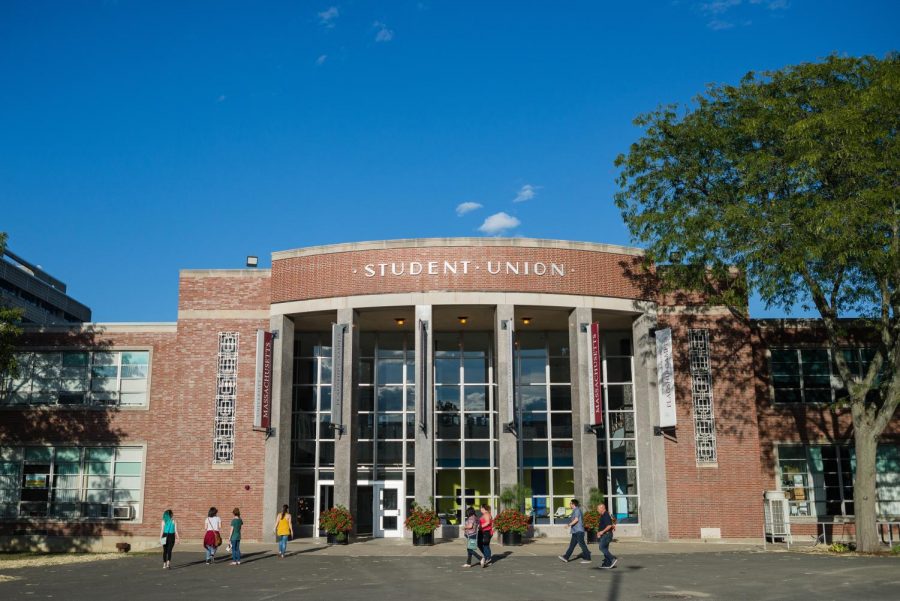The budgeting process for all Registered Student Organizations will change in the 2019 fiscal year at the University of Massachusetts. The new process has been designed by the Finance Committee, the Ways and Means Committee and the newly implemented Budget Recommendation Committee.
This new change was explained at the Student Government Association meeting Monday night in the Campus Center. The objective of this new rebudgeting process is to ensure that all RSOs and agencies are using their funds as effectively as possible, and toward efficient needs and wants. The BRC was created to review the initial budgets and advise RSOs on their request based on the council they are in.
RSOs are divided into nine councils, including academic, arts, club sports, cultural, Greek life, political and advocacy, leadership and service, recreation and religious councils.
Feedback from the BRC will allow RSOs to revise certain requests on their proposed budget plan that cannot be covered, to be granted the most funding available to them under the Student Activities Trust Fund. The SATF fee is included in the tuition of all UMass students.
The SATF fee is currently $131, which adds up to roughly $3.2 million, according to SGA Secretary of Public Relations Cobi Frongillo.
Criteria for funding excludes food, clothing and giveaway items.
As excerpted from the funding guidelines on the SGA website, “Uses that primarily benefit individual students or members of student organizations, rather than the campus community, should be avoided.”
Ways and Means Committee chair Arpit Jain commented on the development, saying, “The way I think about it is that students are paying a fee that might go toward pizza for a club meeting. That doesn’t make sense for the fee money to be used there.”
The SGA strongly advises all organizations which request a budget to meet with the BRC, allowing them to submit higher-quality requests to Ways and Means and allowing the committee to fund them at a higher rate.
“Starting on [Feb. 5], the BRCs will begin reviewing budgets submitted to them, and agencies will start presenting their budgets to Ways and Means because they’re not part of a council. Starting on Feb. 19, all of the budgets will have been submitted,” said Vice Chair of Means and Ways Senator Allie McCandless. “All of the advisers and the BRCs will have reviewed them. That’s when Ways and Means will start meeting in the office basically every single day allocating and voting on budgets.”
RSO budget proposals will be judged on certain criteria including the RSO’s professionalism, revenue contributions, openness to the student body, management history and truth to their mission statement.
If certain RSOs feel that they are not being evaluated fairly, they are able to appeal. When asked about the amount of appeals in recent years, Tim Conceison, the SGA Secretary of Finance, accounted, “Last year we had about 40, the year before was something more in the 45 to 50 range.”
April 6 will be the final day for RSOs to appeal this ruling.
“Something we’ve done with BRCs and everything is that we have provided more resources that kind of combat these logistical errors that force them to appeal. Hopefully this year it’s going to look more in the 25 to 30 range,” said Conceison.
Submitting a budget for RSOs has been redesigned to be simple and user-friendly. Funding guidelines are available on the Campus Pulse as well as a Student Fee Budget Tool to help RSOs correctly phrase and choose what they would need funding for.
For the almost 400 RSOs on campus, the SGA’s Neutrality Mission will be taken very seriously by the Ways and Means Committee during the process of deciding which RSO requests for funding are eligible and which are not.
“The way our Neutrality Mission works is that it makes sure that Ways and Means doesn’t exhibit a bias when allocating budgets,” said Jain. “The BRC does not need to [have] a neutral viewpoint due to not allocating a budget, but by simply providing feedback.”
The S-1, a compilation of all the individual RSO and Agency budgets will be voted on by the SGA Senate on April 23, 2018.
Gretchen Keller can be reached at [email protected] and followed on Twitter @gretchenkellerr.




















